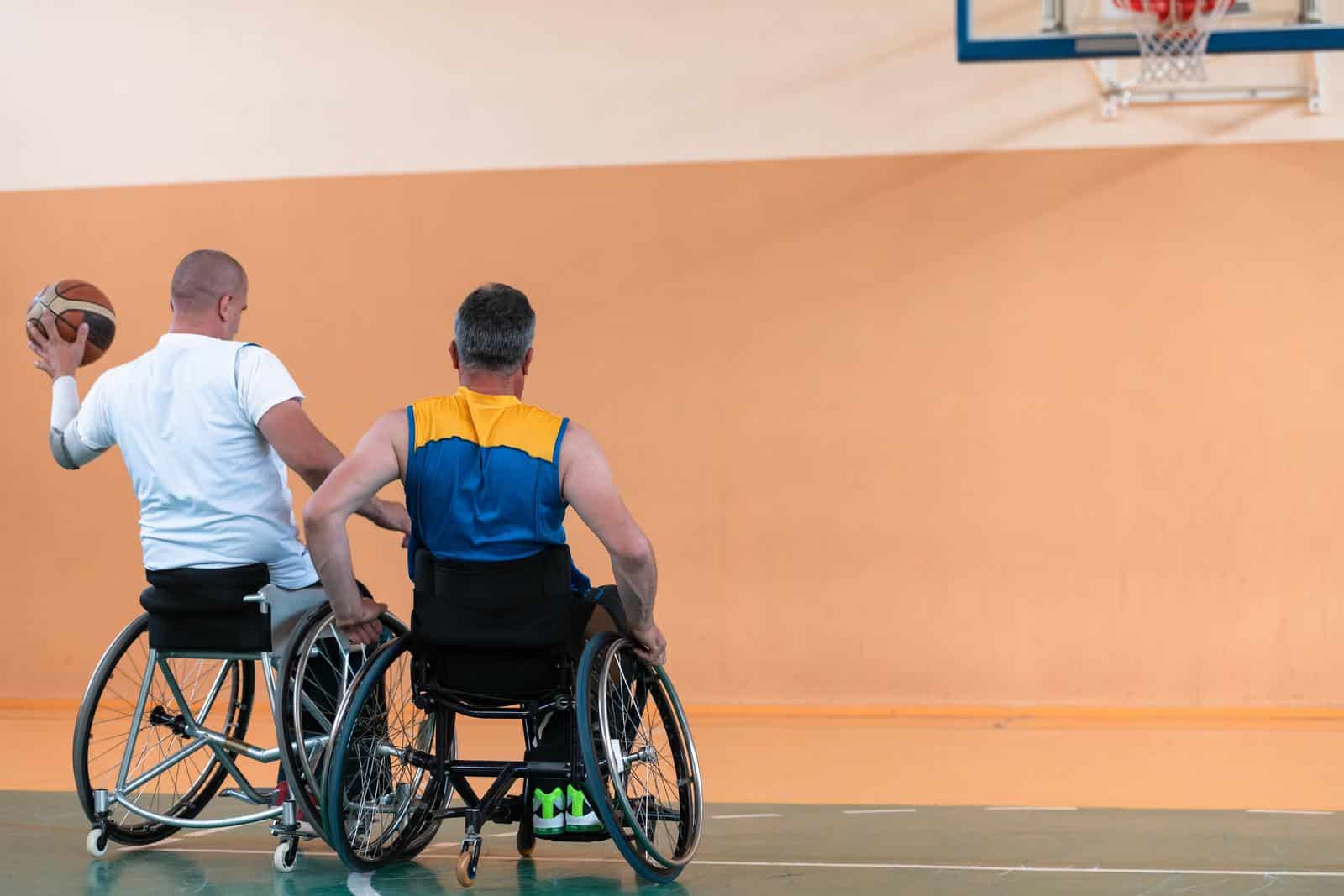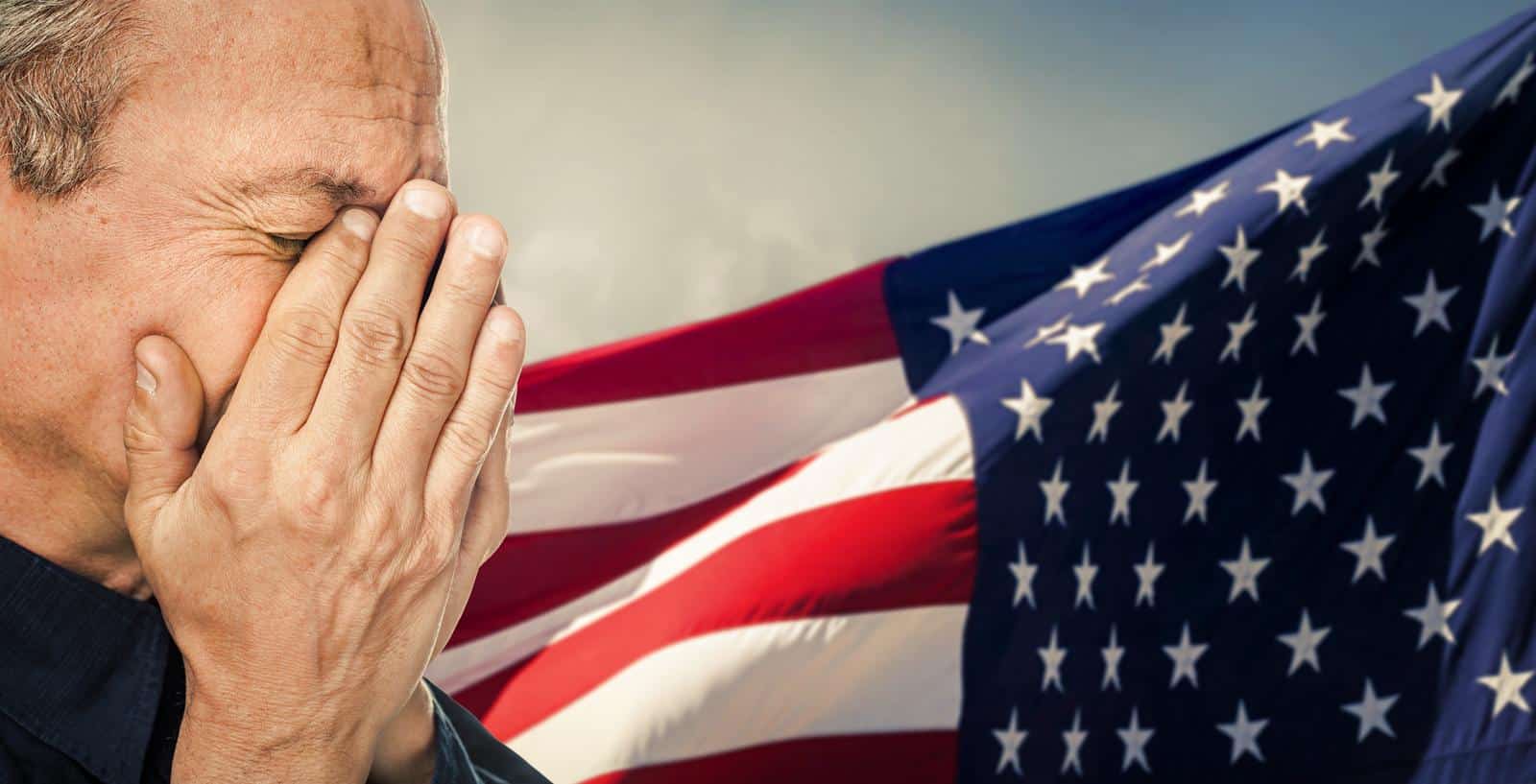Veterans fighting for their retraining benefits from Veterans Readiness and Employment, also called VA Voc Rehab, frequently run into a host of pitfalls if denied or lowballed benefits.
While many veterans have no problems at all, an outcome that is solely dependent on the quality of one’s Vocational Rehabilitation Counselor, many others get tripped up with pitfalls. These pitfalls can be difficult to impossible to climb out of.
Fortunately, Krause Law PLLC has extensive experience helping veterans avoid the pitfalls after a bad denial to gain the training and vocational goal of their dreams.
This article will help you identify some of the pitfalls veterans fall into while pushing for their dream vocational goal.
About these pitfalls.
Like the old Atari game, the danger in the jungle takes many forms, not just deep pits you need to avoid. Frequently, the problem will arise from a counselor who failed to do their job properly. More often than not, this is the core problem.
One might think with a budget of over $1.8 billion, the VA Voc Rehab program would have an easier time training its counselors to not wrongly deny disabled veterans, but that outcome is not as simple as it seems.
Why not?
Because veterans frequently fall victim to biases and outright lies they are told by well-paid counselors holding a position of trust.
If you are like most veterans who apply for these benefits, the process of winning claims from VA Veteran Readiness & Employment (Voc Rehab) should be straightforward.
You as the veteran present the evidence. A Vocational Rehabilitation Counselor then decides whether you are entitled to the benefits you seek.
On the surface, this may seem like a simple process. 1 + 1 = 2, right?
Not with VA Voc Rehab. While 1+1 is sometimes what it seems, what we frequently see in the wrongly denied decisions veterans receive is that 1 + 1 ≠ 2. Instead, it might equal “3” or sometimes “0”.
Seem fair to have a process deviate from common sense and logic? Does it seem like VA Voc Rehab is behaving like a Pro-Veteran program?
If your answer to either of these questions is “No,” then keep reading.
If your answer is, “Yes, because…” then you probably work for VA. Please go away.
New Math @ VA Voc Rehab
You need to consider the kind of logic VA uses in its own calculations when decided whether your evidence satisfies the criteria for approval.
I am being somewhat tongue and cheek here, but there is a reality within VA and VA Voc Rehab with particularity where various biases and premises are loaded within each Vocational Rehabilitation Counselor’s calculus when deciding whether a veteran should be approved.
On the surface, VA made you think its employees were following straight forward logic when decided your case, but in reality the counselor is applying an algorithm that is often flawed by their own biases, unlawful local policies, or flat dereliction of duty.
What I am about to say does not apply to all Vocational Rehabilitation Counselors. There are many counselors who are excellent at managing their biases while adjudicating cases as closely to the law as they can.
However, even the most well intended counselor may fall victim to some of the factors that improperly bias the outcome of a case.
If you are here on this page, I suspect your counselor may fall into one of the following categories running your VA Voc Rehab claim into the ground. Good, bad, or ugly, each counselor is at risk of some or all of these biases at one point or another.
Counselor Biases And Lies
What do I mean by biases and lies?
There are unwritten factors, rules, and illogical premises that sometimes result in bad decisions from even the best counselor. These A+ counselors are sometimes aware of the bias that is impacting their outcomes, but they are unable to address the challenge head on.
But, most counselors, no matter how much money taxpayers throw at this program, are not A+ counselors. Instead, they run the gamut from A to F. And sadly, I have seen quite a few “F” counselors out there. I have also seen some A+ counselors susceptible to the pressure.
Here, a “bias” is a thing that influences a decision improperly resulting in a bad outcome. That is what I mean. A “lie” is false information a counselor knows to be false but tells the veteran anyway.
Now, let’s talk about a few biases and lies.
Veteran vs VA Voc Rehab Self-Employment Denial
Many counselors are biased against veterans seeking to be entrepreneurs. They do not believe disabled veterans can run their own companies. While there exist counselors in various offices who will approve these benefits, many more counselors will deny a self-employment request without much thought.
Veteran vs VA Voc Rehab Graduate Training Denial
Many counselors do not believe VA Voc Rehab should pay for veterans to complete vocational goals that require graduate training. These counselors will falsely state Voc Rehab “does not do that.” When confronted with evidence suggesting Voc Rehab does do that, the counselor may respond, “Well, we do not do that anymore.” Or, “There are new laws that forbid it.”
This is what happened to me more than once before I found a Vocational Rehabilitation Counselor willing to approve my training plan to become a lawyer.
So, some counselors will approve graduate training for veterans. But, many offices still employ counselors willing to mislead veterans during their initial meetings by misinforming veterans that the program no longer pays for graduate training.
Examples of the training these counselors will frequently provide misinformation about include law school training to become a lawyer, medical school training to become a physician, and many other forms of training.
Many counselors are improperly biased in their decisionmaking by local policies that contradict existing laws governing Voc Rehab. Part of the problem is that some Regional Office locations use internal policies that are inconsistent with governing law but force their local counselors to follow the policies.
To summarize, we have biases that disabled veterans cannot run their own business. We have biases that veterans should not be approved for careers that require graduate training. And, we have biases where secret local policies supersede the law.
If the first three do not get you, the next one might.
There are some counselors who do not like veterans. That’s right.
Veteran vs Bad Vocational Rehabilitation Counselor Denial
For whatever reason, VA employs some individuals who simply do not like veterans. Their disdain and jealousy over the benefits veterans are supposed to receive colors their decisionmaking. These counselors love their paycheck but do not like the veterans they are paid to serve.
Back in 2010, before I went to law school, I wrote an article for Military.com called The Lies They Tell that I later republished on DisabledVeterans.org under the title Top Lies Veteran Readiness and Employment Officials Tells Disabled Veterans.
In the article, I explained many of the false statements and lies veterans reported back from their experiences working with counselors across the nation:
- Veterans with high disability ratings usually fail to complete their training.
- You cannot use Vocational Rehabilitation if you are Individually Unemployable (IU).
- Veterans with families have a harder time completing their programs.
- Veteran Readiness will not pay for graduate school.
- If you have a job, you do not qualify for Veteran Readiness.
That was in 2010. While a lot has changed with VA including its new appeals process, the lies some counselors tell still persist.
So, when you get fed a whopper lie that makes its way into an adverse decision with your name on it, then what?
VA Voc Rehab Appeals
Appealing a Voc Rehab denial resembled a basic stovepipe. Once the appeals process got underway, the next stop was the Board of Veterans Appeals.
For decades the process of appealing a Voc Rehab denial was easy. Veterans could submit a signed memorandum telling the agency they disagreed with the denial, and Shazam, the appeals process would start.
The memo could be on toilet paper, an envelope, or the back of a used napkin. So long as it was signed, dated, and stated the basic essentials to put VA on notice the veteran disagreed and sought to appeal the matter, that was enough to rock ‘n roll.
Veterans could present new evidence and argument at any stage throughout the appeal, and the agency was obligated to reverse at any stage in the processing should the veteran’s position have merit.
Veterans without legal education, much less their VSOs, were not required to analyze various strategies to fight an appeal or develop an appeals decision making matrix.
As it should be. Veterans should get their benefits when the evidence shows they are entitled. Wrongful denials should be easy to sort out without complicated strategies and analysis.
But gone are the days of straightforward living when fighting the agency’s wrongful denials.
Today, life is not so simple.
Appeals Modernization For Voc Rehab Appeals
As of February 19, 2019, the game changed forever… and VA left many veterans who lack skilled legal representation in the dust.
To make life easier on agency employees (who frequently made appeals mistakes in the easy system), the agency created a three-option system to replace the former stovepipe model.
Again, in the legacy system for Voc Rehab appeals, you could present evidence and argument up until the agency rendered a final decision at the Board of Veterans Appeals.
Today, not so much.
Choosing a decision review option
Veterans now have to choose between three options, each of which possesses their own intricacies and pitfalls: 1) Higher Level Review; 2) Supplemental Claims; 3) Formal Appeals.
Failure to choose the correct review lane for an appeal could result in significant problems with a claim, especially when it comes to securing Voc Rehab benefits in time for a new semester or to start a new business.
Some veterans will have an easy time with their appeal, no question. But many veterans will have a wall to climb once their counselor digs his or her heels in when denying benefits.
If the counselor is wrong, they may have their performance dinged. If the counselor’s boss has one or two subordinates who screw up a decision, it may not matter. But, as in many offices, when there are a host of errors, the whole team of counselors has an incentive to push back.
When you are up against a team with an incentive to dig in, what should a veteran do to fight back?
Is it worth a fight? Heck yeah if you are fighting for approval to become an attorney or a physician.
To help veterans running into entrenched bureaucrats, I stay up on the trends and strategies necessary to fight back.
Like some other VA accredited attorneys and claims agents, I spend thousands of dollars each year to continue my education on VA benefits laws that impact veterans fighting for their benefits. This education includes getting the inside track on how to leverage the new laws to the advantage of my clients.
Even though VA built out the new system for their own ease of use, VA accredited attorneys like myself have created a new decision matrix to help guide clients through the precarious system for their own success.
What makes me different from those others is my practice area that focuses on benefits for veterans seeking Voc Rehab approval.
Flawed Appeals System
The appeals system is flawed for all veterans. It takes too long. Frequently, the agency fails to correctly follow the law. Veterans often give up on their valuable benefits.
While these kinds of issues can be problematic for veterans seeking Disability Compensation benefits, they can be detrimental for veterans seeking to restart their lives through new vocational training.
For these veterans, waiting one or two years to start training for a new career to help feed their kids can have catastrophic implications, and that is if the benefits are awarded.
How frequently do veterans fight years for Voc Rehab benefits only to be denied because they did not fully understand the law or rules of evidence when fighting for their benefits pro se?
A lot.
Our VA Voc Rehab Practice Area
At Krause Law, we take pride in being one of the only law firms in the country with a practice area focusing on helping veterans fight and win their benefits.
I have been helping veterans with Voc Rehab for over a decade, first as an advocate, then as a journalist, and now as an attorney.
Personally, I used VA Voc Rehab to attend and graduate from Northwestern University, a prestigious private university outside of Chicago. I later used it at the University of Minnesota to achieve a Juris Doctorate with high honors. And… I then used it again to supply my startup law firm with software and hardware gear to get it off the ground.
If you are still reading this, you probably already suspect I did not receive those benefits without a fight. It was a heck of a fight.
What I Do To Help Veterans With Voc Rehab
As a result of my personal fight, I created a law firm with a practice area focusing on helping veterans achieve economic freedom through benefits from VA Veteran Readiness & Employment, formerly Vocational Rehabilitation & Employment.
Same VR&E acronym, different words.
While in law school, I created the only comprehensive guide and online course helping veterans follow in my footsteps, Voc Rehab Survival Guide. This program helps veterans win their VR&E benefits by getting educated on the system from Day 1 of their claim.
Before law school, I also created the Facebook group Disabled Veterans – Chapter 31 Voc Rehab that now has over 40,000 group members.
I have seen a lot of decisions from the Department of Veterans Affairs wrongly denying veterans the benefits they deserve. I have studied their antics. I have studied their training. I have met with senior VR&E officials for more than a decade and written over 2,000 articles about VA.
Still, VA chooses to maintain policies and practices that disadvantage veterans and separate us from the benefits we deserve. So, I continue to fight them both in the appeals process and in the courtroom of public opinion with articles like this.
As a VA-accredited attorney, I fight for veterans who were wrongly denied benefits. Usually, those wrongly denied benefits include things like law school, medical school, or other forms of graduate training.
If you are in a situation where you want feedback on your next step in an appeal, consider asking for a free case evaluation by clicking “Contact Us” above.
Going up against government agencies like VA and its Veteran Readiness & Employment program can be frustrating. You may be dealing with employees who may not understand the law or even want to see you fail.
Many veterans feel hopeless and helpless after a bad decision denying benefits, but you do not need to fight the fight alone.
With our team on your side, you can tip the odds of success in an appeal in your favor with the right evidence and argument. While we cannot guarantee a win, we can promise to stand by your side and support you throughout the appeals process.
If you are feeling overwhelmed with your denied VR&E case, feel free to reach out for a no-cost case evaluation to review the decision. Call (612) 888-9567 to schedule a case evaluation today.
FAQs
What are some common reasons for VA Voc Rehab denial?
Common reasons for a denial include lack of documentation showing an employment handicap, running out of time to use the benefit, and errors by a Vocational Rehabilitation Counselor when developing initial evidence.
How do I appeal a VA Voc Rehab denial decision?
Back in the day, veterans needed to submit a Notice of Disagreement (NOD) within one year of a decision explaining your disagreement. The NOD could be on toilet paper.
Today, you need to select one of three Decision Review Request options, fill out the correct form within the timeframe allowed, and provide information explaining why you disagree with the decision. A Higher-Level Review or Formal Appeal must be filed within one year to preserve your rights. A Supplemental Claim must be submitted within one year to preserve your right to the effective date, but otherwise can be submitted any time after a decision.
How long does the VA Voc Rehab appeal process take?
A Higher-Level Review or Supplemental Claim are taking between 3 to 6 months to receive back a decision from the Regional Office. A Formal Appeal to the Board is taking 3-5 years.
Can I get legal assistance for appealing a VA Voc Rehab denial?
Yes, you can seek legal representation from accredited attorneys, claims agents, or veterans service organizations (VSOs) who are accredited to represent veterans before the agency. These individuals can provide valuable assistance navigating the complex appeals process and advocating for your rights.
Is there a deadline for submitting an appeal for VA Voc Rehab denial?
A Higher-Level Review or Formal Appeal must be filed within one year to preserve your rights. A Supplemental Claim must be submitted within one year to preserve your right to the effective date, but otherwise can be submitted any time after a decision.




 Call Us Now
Call Us Now Email Us Now
Email Us Now


